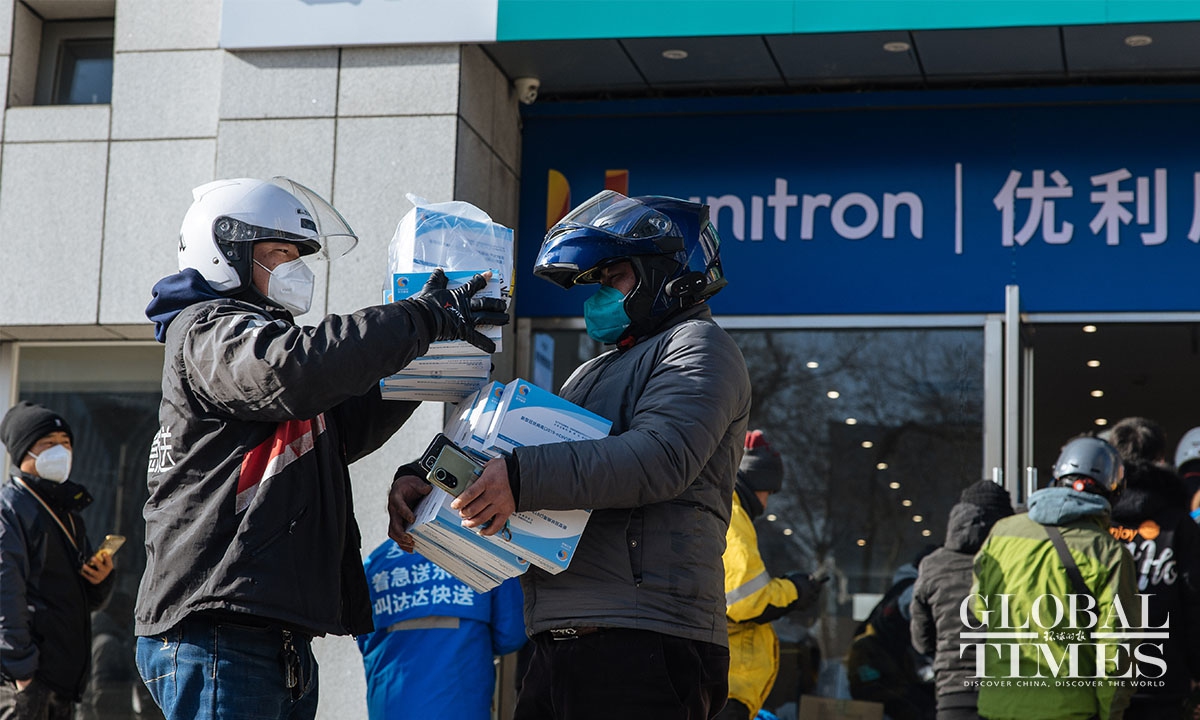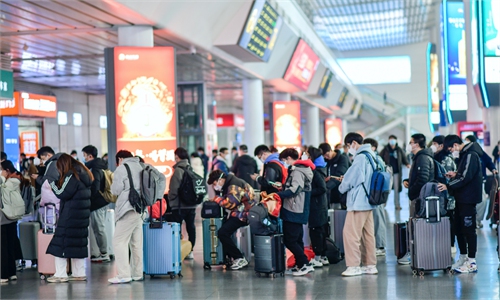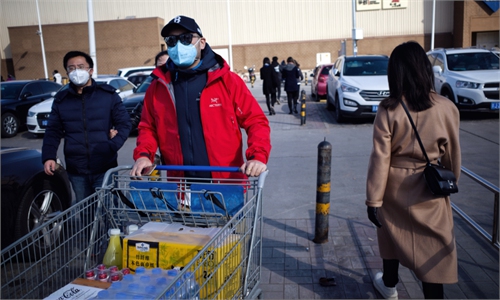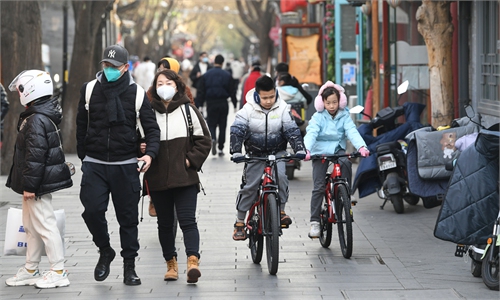China releases guideline coaching COVID-19 patients to quarantine at home
Highlights roles of local communities, health institutions

Photo: Li Hao/GT
China’s State Council on Thursday released a guideline coaching people who are confirmed positive for COVID-19 how to react to the infection at home, following the country’s “more scientific and precise” COVID-19 response adjustment that allows silent carriers and mild cases to quarantine at home.
The guideline details suggestions and cautions for residents staying at home for quarantine, and it also underlines the responsibilities of local communities and health institutions in assisting residents to get through their infections.
Asymptomatic carriers and patients with mild symptoms and those who meet certain requirements to quarantine at home are covered by one of the essential adjustments that the State Council made in its optimized 10-point COVID-19 response on Wednesday.
People who undergo home quarantine should live in separate rooms from other family members, and have thermometers, napkins, masks and trash cans with a lid, prepared. Infected individuals are urged to disinfect their rooms, hands, tableware and toilets after each use.
Local communities and health institutions must shoulder their responsibility to make connections with residents confirmed with COVID-19, instruct them how to better receive home quarantine, take antigen tests and assist them to transfer to hospitals in severe cases, according to the guideline.
It also suggested that local health institutions establish a 24-hour on-duty response system and appoint specialists to answer consultations of residents about home COVID-19 treatment, either through hotlines or online services. The health status of local residents who are infected should be monitored and recorded by health institutions.
The guideline was widely circulated online, with people saying they came in a timely manner as they addressed some essential questions for home quarantine amid the COVID-19 policy transition period.
A former official in China's Center for Disease Control and Prevention told the Global Times on condition of anonymity that the guideline stressed the role of local communities and health institutions, which will transfer from the previous involvement in epidemic control to an assistance hub that bears the responsibility of offering COVID-19 patients medical evaluation, guidance and services either through online consultations or home visits.
Infected people, on the one hand, will be able to get help from local communities and health centers in the face of continuous COVID-19 flare-ups. On the other hand, medical resources will be better relocated to those who need more help, the official said.
The COVID-19 flare-ups continue to cause a high level of infections in the country, with 4,031 confirmed and 17,134 asymptomatic cases reported on Thursday, data compiled by the National Health Commission said.
Home quarantine can be lifted if two consecutive nucleic acid tests have Ct values above or equal to 35 and antigen testing is negative, according to the guideline.
If patients develop symptoms such as fever or cough, they should take relevant medicines. If having difficulty in breathing, showing a continuous high fever above 38.5 C, or exhibiting hypnosia among children, they are urged by the guideline to receive professional treatment in a hospital.
The Global Times noticed that the guideline especially urged local communities and health institutions to offer necessary health guarantees for elderly people and other vulnerable groups.
The anonymous official noted that the protection of highly vulnerable populations is now one of the focuses of China’s epidemic work.
Another guideline on antigen testing application released by the State Council on Thursday underlines that elderly people can receive free antigen testing twice every week from communities. Each health care institution has a stock of antigen detection reagents for 15-20 percent of the total population served, the guideline said.
As a response to the country’s newly released optimized COVID-19 measures, which include scrapping negative nucleic acid results and health code requirements for entering public places except for designated locations, cities including Beijing, Shanghai, Chongqing and North China's Hebei Province have released their own versions of local measures.
In Shijiazhuang, capital city of Hebei, dine-in services and other businesses including cinemas, libraries, museums, indoor stadiums and indoor swimming pools resumed operations from Thursday. Large-scale public activities such as performances, sports events, exhibitions and other activities also can be held in a safe and orderly manner.
In Beijing, Global Times reporters on Thursday saw more streams of people visiting parks, strolling at shopping malls, and dining at restaurants. Beijing only requires negative nucleic acid tests when residents enter nursing homes, schools, indoor venues and dine in at restaurants. Schools with no COVID-19 can operate on-site classes normally, according to Beijing’s local optimized measures released on Wednesday night.
A negative test and health code as mandatory requirements to enter Beijing were scrapped. Shanghai adopted similar measures. No COVID-19 negative nucleic acid test certificates are required for indoor entertainment venues and restaurants in Shanghai starting from Friday. Travelers without testing records within seven days will no longer be subject to a yellow health code.
For domestic cross-regional travel, the Ministry of Transport also moved to remove the checking of negative tests and health codes in buses, taxis and trains.
A total of 4,468 passenger trains ran on Wednesday, carrying 2.64 million passengers. The national railway plans to run 4,609 passenger trains on Thursday with the number of passengers is expected to grow further, China's state railway operator announced on Thursday.




